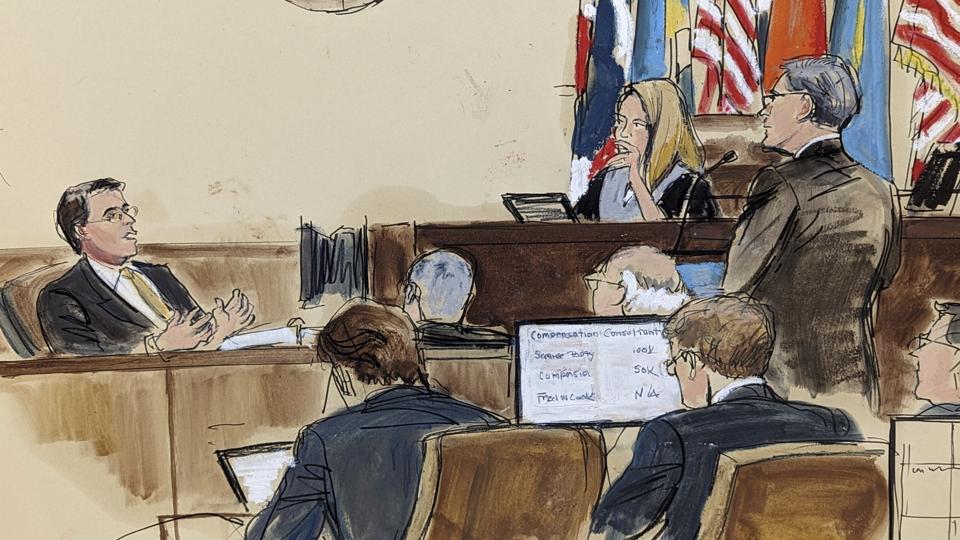Elon Musk and Tesla got a lesson today in corporate law that I give my students for a vastly reduced price tag: The entire fairness doctrine is a high standard to meet and you best be sure that you treated the shareholders fairly. Chancellor Kathaleen St. J. McCormick, of the Chancery Court of Delaware, in a 201-page opinion issued yesterday, rescinded Musk’s compensation package granted to him by Tesla with an estimate valuation of $55.8 billion. She issued relief to the plaintiffs in a much-anticipated ruling, stemming from a 2018 derivatives case.
Musk, ever one to sum things up and view things from the prism of reasonability, responded on X, formerly known as Twitter (because of course he did): “Never incorporate your company in the state of Delaware.” He then suggested Nevada or Texas as preferable venues if corporations “prefer shareholders to decide the matter.”
Putting aside the irony of those statements, let’s examine the law in question, the facts of this case, and where we go from here.
Entire Fairness
The entire fairness standard is a Delaware corporate law special. It is at the core of the Delaware General Corporate Law (DGCL) and the surrounding precedent and has been accurately described as the “most onerous standard of review.” To even get to the point where entire fairness is triggered, a plaintiff must demonstrate that a majority of the directors of a company are “interested” in the transaction; in other words, not independent. Alternatively, if a plaintiff can show that a controlling shareholder is on both sides of a transaction, entire fairness can also be triggered.
Once that very high threshold is met, the burden shifts entirely to the defendant board to demonstrate the transaction is inherently fair to the stockholders. And they have to demonstrate this in both the procedure and in substance itself of the deal. This is typically accomplished by a so-called “majority of the minority” vote: if independent directors present to the non-controlling shareholders the transaction in question and a majority of these shareholders ratify the deal, the deal is likely to not be reviewed by the court.
Unfortunately for Musk and Tesla, they managed to bungle this transaction at nearly every turn and it has now cost them. For Musk, he’s now forced to give up his $55.8 billion compensation package. For the board’s part, they’ve already agreed to return over $750 million in their own compensation for this deal.
How Tesla Got Here
The plaintiffs in this case were required to show one of two points: either that Musk was a controlling shareholder or that the majority of directors were interested parties. Chancellor McCormick, in her ruling today, found that both were true. At the time this package was negotiated, Musk owned 21.9% of the voting equity of Tesla. Musk and Ira Ehrenpreis, the chair of the compensation committee, overseeing the negotiation of the compensation package, had a 15-year long relationship. The other member of the committee who was on part of the working group which negotiated the deal had a 20-year long relationship with Musk and even vacation with Musk and his family regularly. The General Counsel of Tesla, Todd Maron, was Musk’s former divorce attorney and even after extensive discovery, depositions and a trial, the Chancellor found that it was still unclear “whose side Maron viewed himself.” Maron was even the drafter of numerous documents which argued the process was fair. Ehrenpreis testified that he didn’t view the negotiations as “adversarial.”
From a substantive perspective, Musk made it clear at the outset of the process and throughout that he had no intention of leaving Tesla. According to McCormick, the board never seemed to ask the $55.8 billion question: “was this plan even necessary for Tesla to retain Musk and achieve [the company’s] goals?” In her opinion, Musk was a self-driving process, dictating each and every part as he saw fit the entire time. Substance and process seemed to be the furthest thing from their mind during this deal.
What’s Next?
Elon Musk’s question on whether he should relocate Tesla to Nevada or Texas via a tweet, prompted questions from X commentators about where venture capitalists would choose to relocate their companies in the future. I regret to inform everyone that such a shift is very unlikely. The reasons behind this assertion are detailed in my forthcoming research paper. Delaware has a rich history of legal precedents, particularly in corporate law matters. Chancellor McCormick demonstrated in this case, once again, that the expertise of Delaware’s Court of Chancery in handling complex business disputes and interpreting corporate laws positions the state as a hub of legal excellence. Large public and private firms benefit from this wealth of experience and jurisprudential knowledge, assuring them and their shareholders, of a reliable legal system. In Delaware, the principle holds true that no one is above the law, regardless of their wealth or status, including billionaires like Musk.
I assure you that I’ll provide more details on this topic soon. Stay tuned for further information!
A special thank you to my research fellow, John Livingstone. If you have any comments, suggestions or feedback, please send them to John Livingstone john.livingstone@case.edu or to me anat.beck@case.edu.

